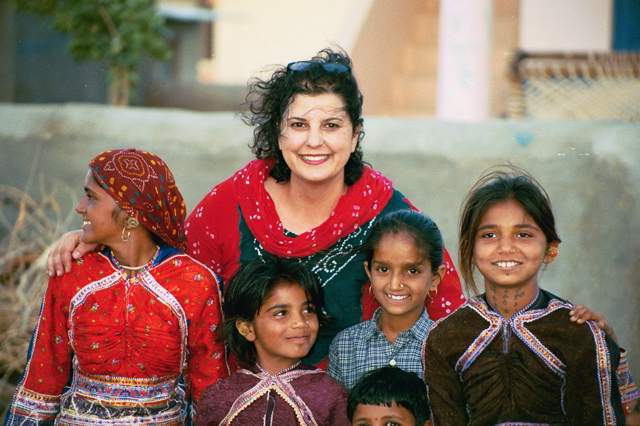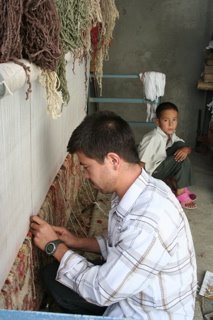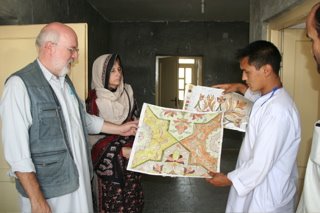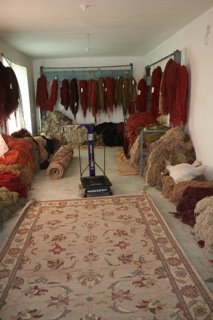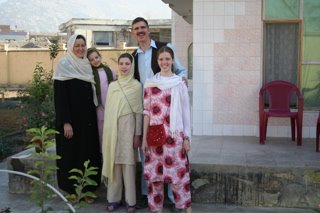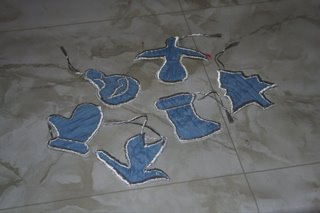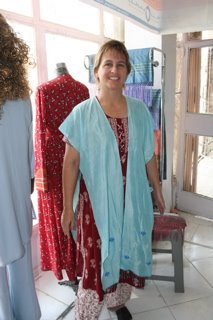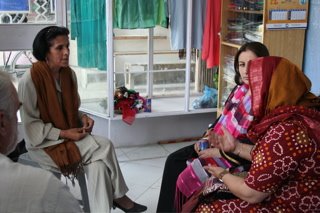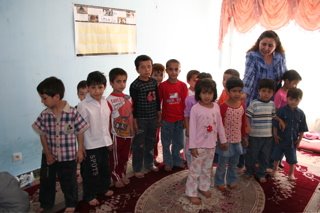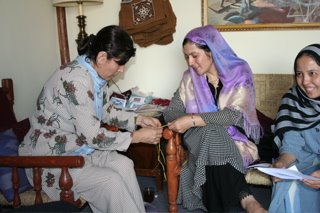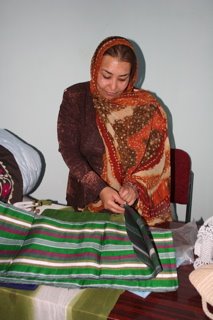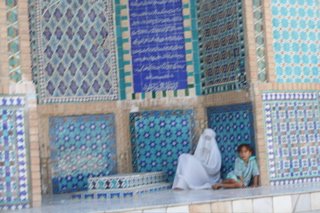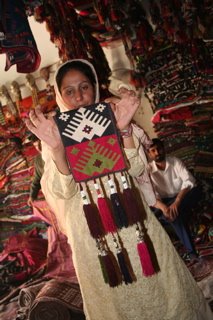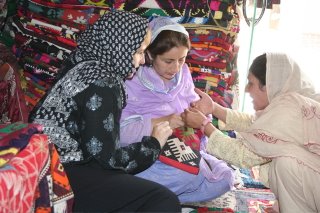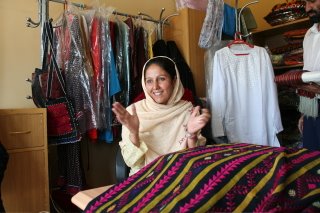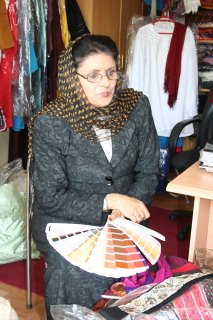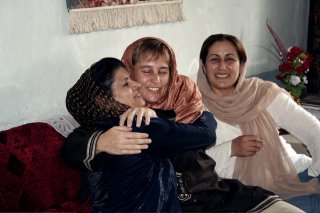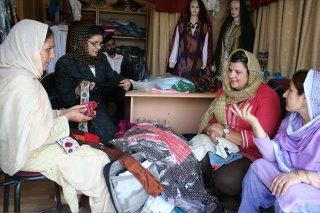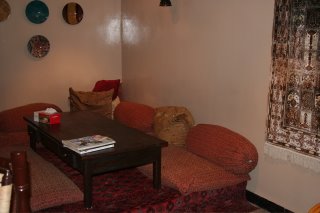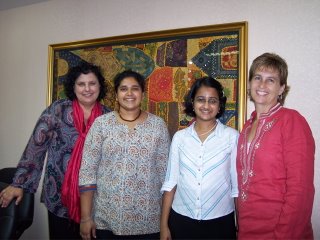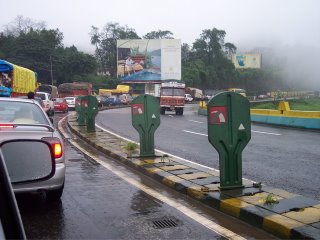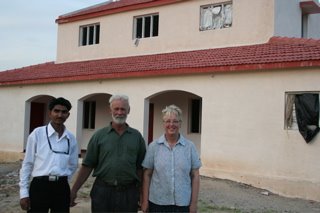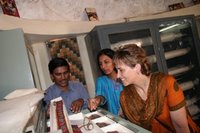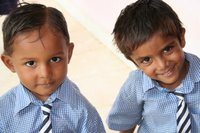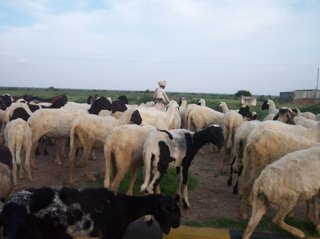
We left Kutch on Monday afternoon for a flight to Mumbai. We were caught up in a security nightmare as they made us check our two carry ons and only carry one bag on the plane. As international passengers, there are usually many concessions made, but not on Monday. No makeup, lipstick gels, etc. They did let us carry on our laptops and cameras, but that will not be the case as we head to Afghanistan on Saturday. We are having to leave much of our luggage in India and get it back on the way to Nairobi. This is not a great time to be on this "World Tour", but fortunately we do feel safe. The roads are filled with cars, trucks, auto rickshaws, cows, water buffalo, shepherds and sheep. Makes the rides full of surprises and uncontrollable honking.
After the flight to Mumbai, we took a four and a half hour car ride through the rainy mountain roads to Pune to see other friends who are running a card making group. Just as in the US on a car drive we were thrilled to see the golden arches as we were ready for a clean rest stop. In India that is a rare treat. As we read the menu board we laughed at the Chiken Tika burgers and Maharaja Mac. French fries thank goodness are the same everywhere!! We are here for two days and heading back to Mumbai fro meetings with several handcraft groups and our Exporter who consolidates our shipments. I will be doing a training for their designers on trends and colors that impact 2007 and 2008 designs.

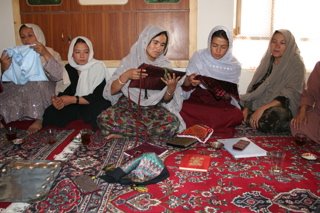
 In many areas of the world we work in, we use a similar model to the one being used by ORA International. Women coming together in small groups and electing two to represent them in a cluster association and then forming committees and teams to eventually form an association. This way women have a greater voice together than apart. We visited two different cluster groups representing about 18 groups each. Many arrived in burquas. These groups are part of the 45 groups that have been developed representing about 800 family units and almost 4500 individuals. On this morning one of the facilitators was talking about having been beaten by her husband because she is working with the women. We noticed that her speech indicated her jaw had probably been broken in an earlier beating and set without medical treatment. We were angered, but know this model is a slow but sure way to empower even though outside interference could get her and others killed. These women were determined to keep coming and keep working towards a common goal. This was the day I was taking a survey of their skills and abilities to begin the economic portion of the training. They were so excited about seeing what I had purchased from the marketplace and other artisans and many of them have the same skills. I asked sach of them to pick up the product that I brought that most represents the work that they know how to do. They were all so excited as they shared with each other and me and curiously investigated the wares. The next step is in two weeks they are to bring back a sample of the item they said they could make or any other items from their groups to be photographed and emailed to me. This is the part where we begin to talk about starting businesses and quality. A very long process but oh so worth it when I see how excited they are and how hope is in their eyes.
In many areas of the world we work in, we use a similar model to the one being used by ORA International. Women coming together in small groups and electing two to represent them in a cluster association and then forming committees and teams to eventually form an association. This way women have a greater voice together than apart. We visited two different cluster groups representing about 18 groups each. Many arrived in burquas. These groups are part of the 45 groups that have been developed representing about 800 family units and almost 4500 individuals. On this morning one of the facilitators was talking about having been beaten by her husband because she is working with the women. We noticed that her speech indicated her jaw had probably been broken in an earlier beating and set without medical treatment. We were angered, but know this model is a slow but sure way to empower even though outside interference could get her and others killed. These women were determined to keep coming and keep working towards a common goal. This was the day I was taking a survey of their skills and abilities to begin the economic portion of the training. They were so excited about seeing what I had purchased from the marketplace and other artisans and many of them have the same skills. I asked sach of them to pick up the product that I brought that most represents the work that they know how to do. They were all so excited as they shared with each other and me and curiously investigated the wares. The next step is in two weeks they are to bring back a sample of the item they said they could make or any other items from their groups to be photographed and emailed to me. This is the part where we begin to talk about starting businesses and quality. A very long process but oh so worth it when I see how excited they are and how hope is in their eyes.


